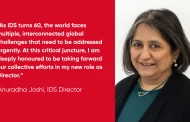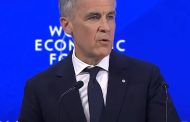The epistemic poverty of image making in Nigeria in general and of the Presidency in particular attracts the attention of an interested observer and activist of the Kaduna based Network for Justice in the piece below. Read on!
By Comrade Sanusi A. S. Maikudi
In a democracy, leaders are expected to welcome scrutiny, dissent and constructive criticism. Unfortunately, under the administration of President Bola Ahmed Tinubu, public discourse is increasingly being poisoned by the conduct of his official spokespersons and political media surrogates many of whom have abandoned professionalism in favor of personalized attacks and emotional blackmail.
Whenever an elder statesman, technocrat, journalist, or opposition figure raises a legitimate concern or offers a reasoned critique of the administration, these presidential mouthpieces launch into tirades of abuse. Their default reaction is to demonize dissenters, accusing them of harboring envy, hatred, or personal vendettas against the President.
This disturbing pattern has played out repeatedly: from former President Olusegun Obasanjo, former Vice President Atiku Abubakar, former AfDB President Dr. Akinwumi Adesina, and ex-Governors Peter Obi, Nasir El-Rufai, and Sule Lamido, to serving lawmakers like Senator Abdul Ningi and Senator Ali Ndume. The list of respected Nigerians targeted by this smear machine continues to grow. Even journalists, editorial writers, and commentators, whose constitutional role is to hold power to account, have not been spared.
Sadly, some of the most vocal figures in this pattern include the President’s Special Adviser on Media and Publicity; Bayo Onanuga, the Special Adviser on Information and Strategy; and party-affiliated media surrogates like Barrister Daniel Bwala whose combative public interventions frequently echo and amplify official talking points.
Their statements often dismissive, sarcastic, and hostile have set a tone that emboldens a toxic communication culture around the presidency and the APC. Rather than engage with facts, debate policies, or clarify government actions, these spokespersons seem to believe that shouting down critics with insults is a strategy. They shun professionalism, ridicule dissent, and weaponize the media space against citizens and stakeholders whose only offense is to speak out.
Is this how image makers in a democracy should behave?
Are there no codes of conduct, ethics, or basic standards guiding the conduct of public communication officers? Or are these individuals intoxicated by proximity to power as to be unable to distinguish between loyalty and sycophancy?
What is even more concerning is that we have no evidence that President Tinubu has ever reprimanded any of them. Has he called them to order? Has he reminded them that he was elected by citizens who have a right to speak, critique, and demand better leadership?
The President resides in a democratic glasshouse, one built not by decree, but by votes. He is accountable to the people. Therefore, it is imperative that he calls his aides to order and ensures that they reflect the values of dignity, civility, and respect for opposing views.
‘The Renewed Hope’ agenda cannot succeed if it is built on intolerance, arrogance, and disdain for accountability. True hope lies in social justice, good governance, and sustainable development, all of which demand a leadership culture that listens, learns, and responds maturely.
Unfortunately, the misdirected aggression in the conduct of these spokespersons is already eroding the President’s public support rating. Many critical stakeholders, political allies, technocrats, and elder statesmen initially sympathetic or neutral are now withdrawing their support and goodwill. The result is a growing sense of disenchantment within the ruling APC, while many formerly non-aligned voices are gravitating toward the emerging opposition coalition, thereby beefing up its rank and file.
If this trajectory continues, the Tinubu administration risks becoming increasingly isolated, while the APC itself faces the danger of political fragmentation and a loss of nationwide credibility. What is at stake is not just image but legitimacy, cohesion, and long-term survival.
Finally, professional associations, the larger civil society and the general public must not remain silent. They must speak out boldly against the normalization of verbal abuse and the weaponization of public communication. If democracy is to thrive, we must defend not only the ballot box but also the right of every citizen to speak truth to power without fear of insults or intimidation.
History will not be kind to a democracy that silences its voices. Let us not allow this dangerous culture to take root.




























